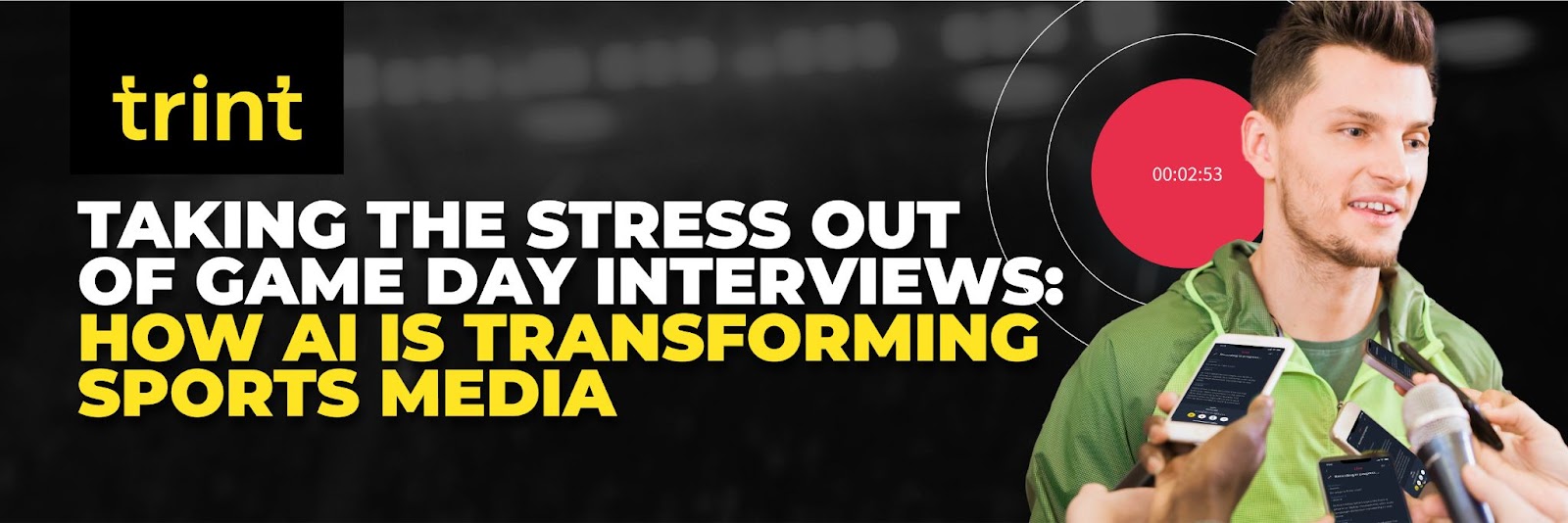
In the hyper-fast world of sports where demand for news is 24/7, media teams are under constant pressure to deliver timely, high-quality content that not only engages existing aficionados but also has the power to grow the fan base.
However, legacy approaches to content creation only seem to slow down workflows, increase costs and limit the ability of sports media teams to tell compelling stories that quench their audiences’s thirst for the latest news.
The time feels right to lean on AI to disrupt the status quo and revolutionize the way sports teams, leagues and associations deliver impactful content.
When we talk with sports communications teams globally, we tend to surface four common challenges:
The demand for instant content 24/7 - from pre-game press conferences to post-match talks and recaps - leaves little room for delays. Yet the traditional process of reviewing calls, typing up notes and finding key quotes can take a lot of time, especially for longer interviews. And if that’s not enough, coming up with an engaging summary is never quite as simple as you hope! And that opens the door for your competitors to steal your readers!
On top of that, super tight deadlines to meet demand for news updates make it challenging to verify what’s been said and ensure accuracy of published content.
Players hail from around the world and conduct interviews in many languages other than English. Not only does this make it hard for a club’s communications team to know what a player is saying, it adds even more steps and potential costs to the process – and that just delays things even more.
On the flip side, content is key to engaging new audiences in new markets and growing the fan base globally. The lack of language skills is prohibiting sports teams from expanding their reach to potential new revenue streams.
In sports, things can change in an instant. Controversies, injuries, trades and transfer rumors require rapid media responses. But a misquote of an athlete or executive can cause serious PR trouble – meaning media teams must not only ensure that official statements and interviews are accurately captured and disseminated, but must also have the means to rapidly verify and respond to any potential crisis.
With likely thousands of hours of content generated annually, from match footage to interviews, finding and retrieving the right clip or quote from the archives can be a logistical nightmare.
Not only are manual tagging practices prone to human error, but the inability to find that needle in the haystack leads to inefficiencies as well as missed opportunities to repurpose content for new stories.

There are numerous ways in which AI is revolutionizing how sports media and communications teams are delivering fresh, new content to audiences.
Trint’s advanced AI engine allows sports media teams to transcribe events as they unfold in almost any language, on desktop or mobile. A live feed is shared directly with colleagues who can verify quotes and, importantly, start building their story – all before the interview, commentary or press conference has finished!
No wasted time typing up notes or waiting for files to transcribe. As soon as the event ends, you already have a searchable, editable and collaborative transcript to use towards your next story.
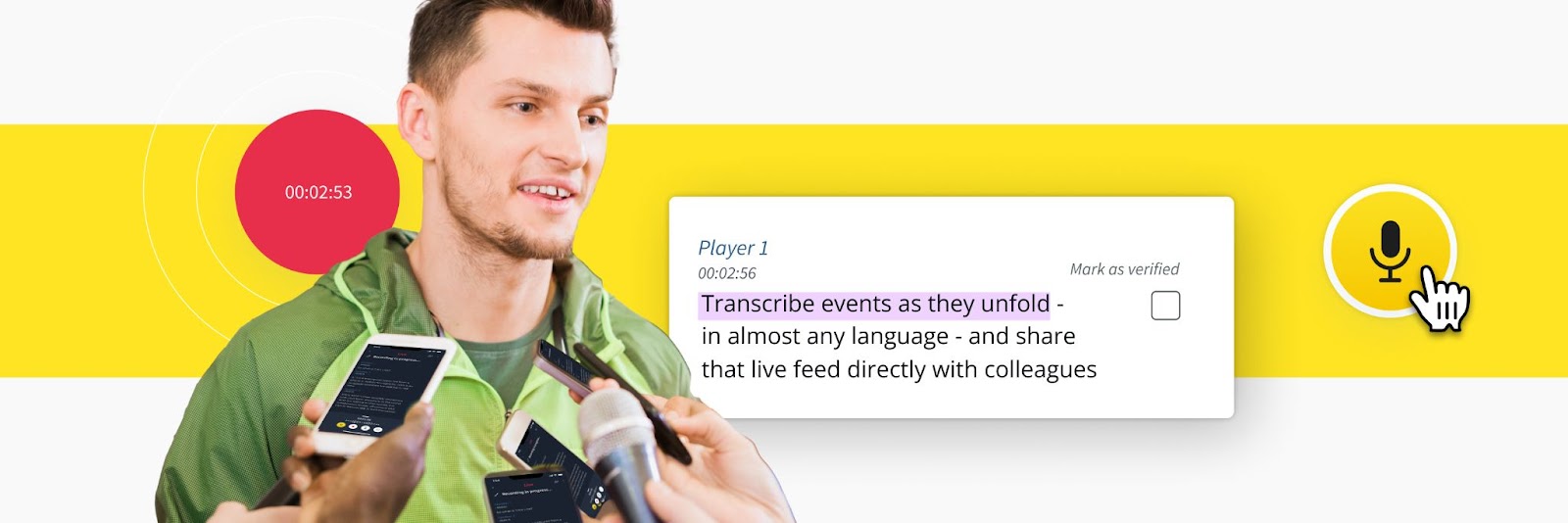
AI is bringing the world even closer together. Not only does Trint transcribe in over 40 languages – it also has the power to take a transcript and translate it into as many as 50+ languages.
That way, media teams can instantly localize content for a global fanbase or efficiently tap into new territories. On top of that, you can break down those language barriers with non-native players and coaches. Less not knowing what your star international player has just said. More streamlining content creation.
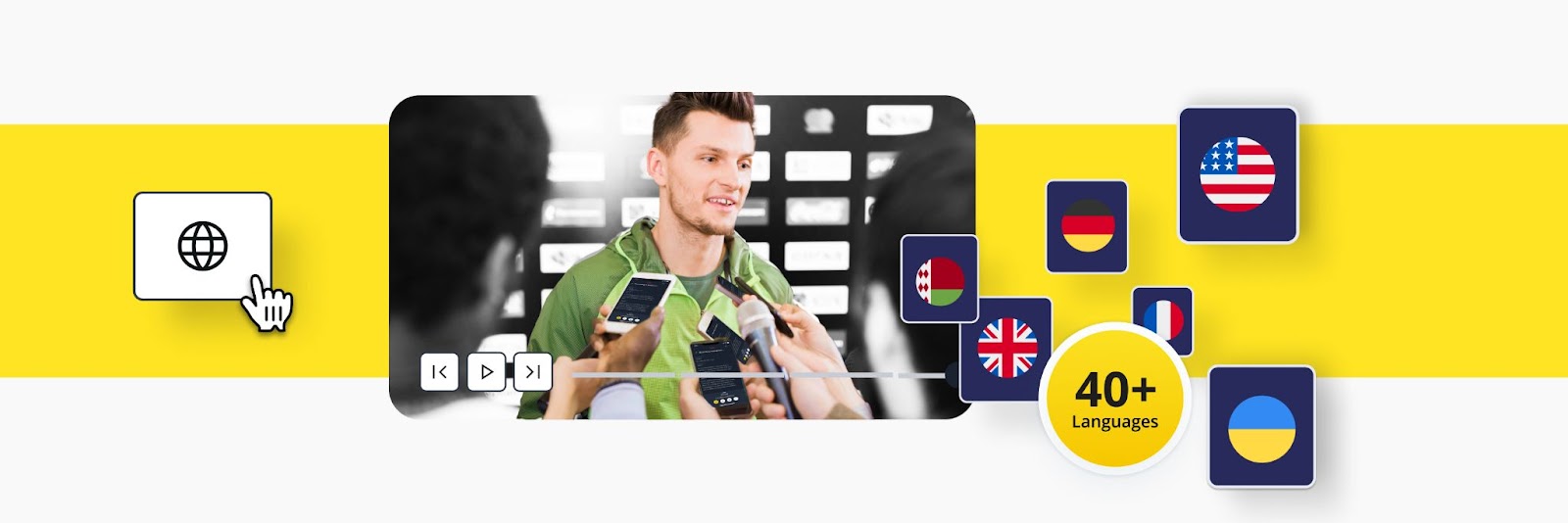
With advanced search and tagging features, Trint enables sports media teams to instantly locate key moments across transcripts – whether it’s a legendary goal or touch down, or a coach’s pre-match speech. Not only is that ideal for getting viral snippets across socials quickly but the accurate record of all transcribed content means you can verify quotes and reduce the risk of misinformation or fake news.
In addition, make that unknown content archive a thing of the past. With Trint’s BulkScribe API, you can transcribe your entire content library in one swift motion. No more not knowing what’s collecting dust in the cloud. Everything is instantly searchable meaning you can repurpose content and create new engaging stories.
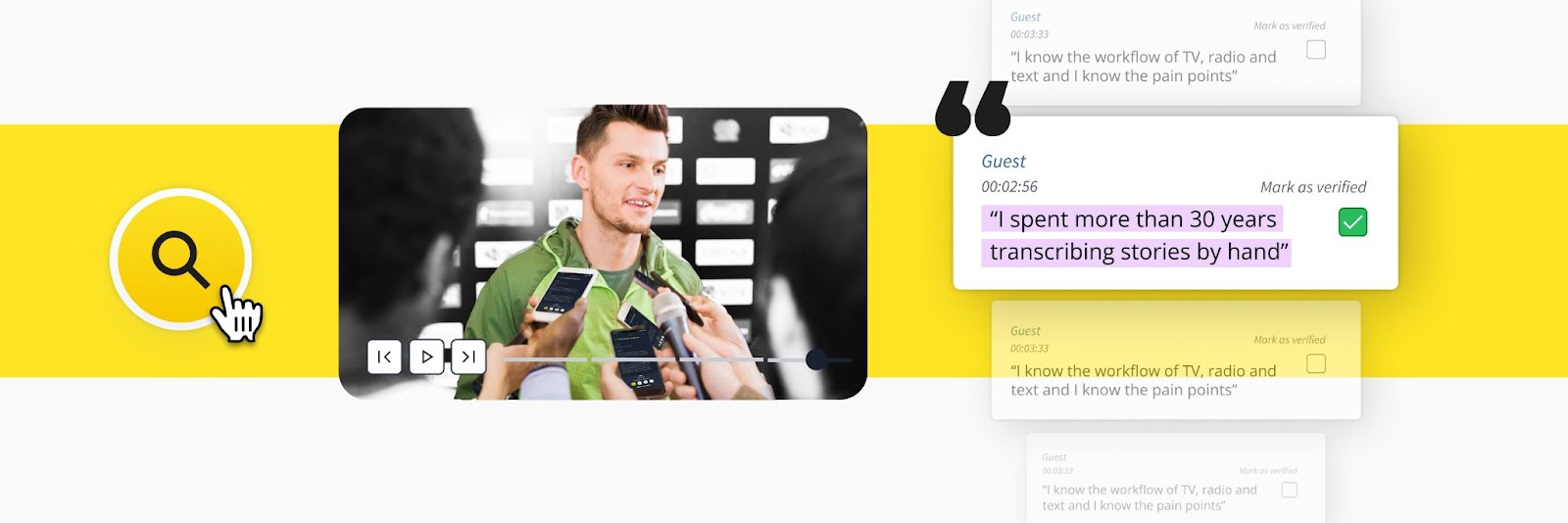
Getting that perfect blurb for socials just got a whole lot easier. Advances in generative AI mean that users can now take an interview or press conference transcript and instantly generate a summary in seconds.
With Trint, sports media teams can customize summary format (e.g. paragraph vs. bullet points) and length (to a specific word limit if need be), and even endlessly regenerate to arrive at that ideal blurb. No more scratching your head at that last step, wondering why it’s taking so long to scribble down a summary!
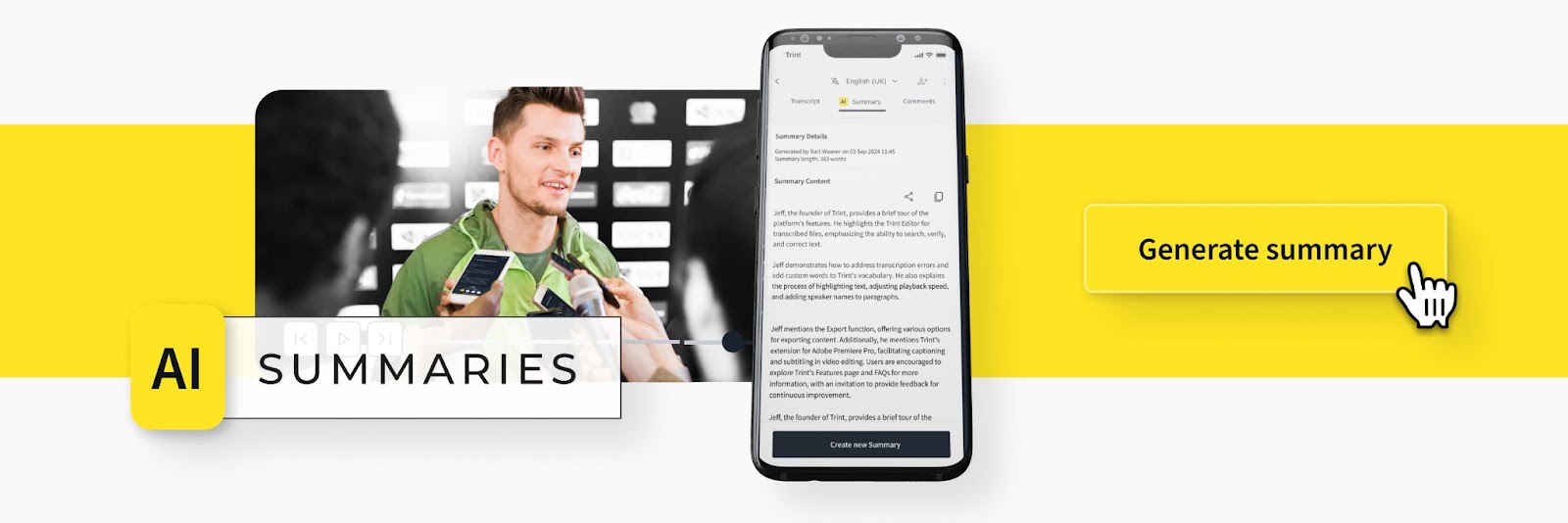
By leveraging AI transcription tools like Trint, sports media teams can work faster, smarter, and more effectively. Whether it’s enhancing real-time content production, making archives more accessible, or improving global reach, AI is transforming the way media professionals in the sports industry operate.
With the increasing demand for digital content, the question isn’t if sports media teams should adopt AI-powered transcription—it’s how soon they can start benefiting from it.